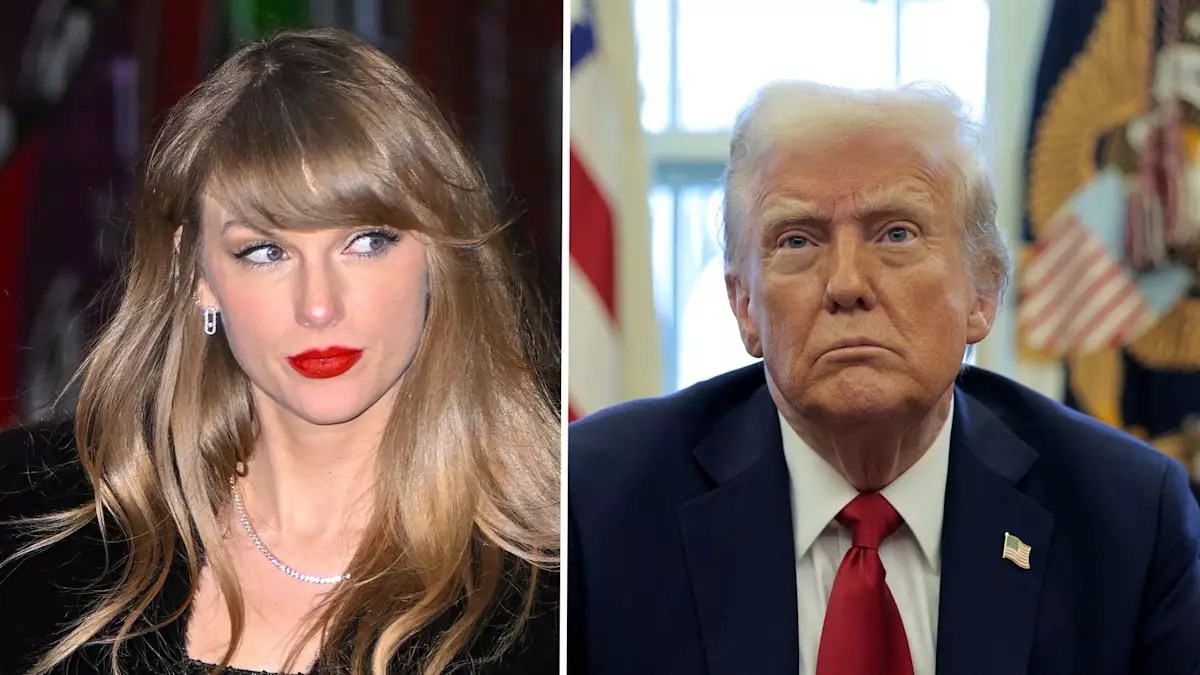In an unusual yet telling move, former President Donald Trump directed his ire toward pop superstar Taylor Swift through a recent post on his platform, Truth Social. His provocative question, “Has anyone noticed that, since I said ‘I HATE TAYLOR SWIFT,’ she’s no longer ‘HOT?'” raised eyebrows and ignited discussions across social media. At 70 years old, Trump’s understanding of cultural relevance appears to remain stubbornly entrenched in nostalgia, rather than engaging with the evolving dynamics of current pop culture. This unsolicited commentary presented a unique glimpse into the intersection of celebrity and politics, illuminating how entertainers can challenge political figures, sometimes provoking an unexpected backlash.
Trump’s comments about Swift, alongside a separate rebuke aimed at Bruce Springsteen, created an atmosphere ripe for speculation. He even disparaged Springsteen’s overseas remarks regarding the U.S. administration, branding him a “highly overrated” figure. Such statements reveal a notable trend in Trump’s response to public figures who voice dissent: a willingness to engage in personal attacks rather than constructive dialogue. Moreover, Trump’s repetitive targeting of Swift signifies more than mere disdain; it highlights his precarious position in a celebrity-obsessed culture that often weighs public opinion heavily through the lenses of social media.
A Deep-Rooted Feud
The longstanding feud between Trump and Swift dates back to 2020, when the musician broke her political silence through her Netflix documentary. Claiming she needed to be “on the right side of history,” Swift endorsed Democratic candidates, inciting a fiery response from Trump who seemed unable to process that a woman of her stature could disagree with him publicly. His assertion that Swift “endorses a Democrat” and would “probably pay a price for it in the marketplace” reflects an antiquated notion: that artists, particularly women, should align politically with traditional conservative values or risk their careers.
This narrative of political allegiance has been further complicated by Swift’s own choices; not only did she support Tennessee Democratic hopeful Phil Bredesen, but she also endorsed Kamala Harris for President in 2024. The backlash Trump faced from such endorsements likely exemplifies how artists wield power over public opinion, revealing Trump’s vulnerability when confronted by cultural forces he cannot easily control or dismiss.
The Swift Family Connection
In a twist of irony, Trump’s daughter Ivanka and granddaughter Arabella are enthusiastic supporters of Swift’s music. Recently, they celebrated Arabella’s 13th birthday with a lavish Taylor Swift-themed party—a fact that adds another layer of complexity to the ongoing feud. Ivanka even posted a captivating image of a heart-shaped cake designed to mimic the aesthetics of Swift’s hit “Blank Space” video. This duality within Trump’s own family emphasizes the conflicting reactions to Swift’s artistry and public persona. While he condemns her publicly, his family revels in her music and message.
Additionally, the generational divide reflects broader societal trends; younger audiences tend to gravitate toward artists who advocate for change, while older generations may feel threatened by such audacity. Not only does this expose cultural friction, but it also reiterates the notion that themes of love, heartbreak, and societal reflection in Swift’s music resonate with fans across a spectrum of beliefs, ultimately dwarfing any political commentary that may stem from her actions.
The Broader Implications
The rivalry between Swift and Trump offers a microcosm of a larger cultural conflict within the United States: the struggle for voices in public discourse and the roles celebrities assume in political landscapes. Swift’s unapologetic support for progressive causes stands in sharp contrast to Trump’s conservative ideals, but their exchanges reveal the precarious nature of celebrity in a political context. The reality is that music and entertainment have always served as important platforms for social commentary; thus, Trump’s reactions raise critical questions about the role of celebrities in shaping political narratives.
It might not be surprising to see figures like Trump disparaging popular artists like Swift and Springsteen; after all, their outspoken views highlight Trump’s uncanny ability to provoke a reaction, whether positive or negative. However, the cultural conversation surrounding these events feeds into a wider examination of how public figures navigate influence and authority in a world where every tweet and social media post can ignite a firestorm of opinion.
Understanding this dynamic is crucial as we continue to grapple with the evolving relationship between art and politics, and how figures like Taylor Swift navigate these treacherous waters with grace, resilience, and undeniable star power.


Leave a Reply